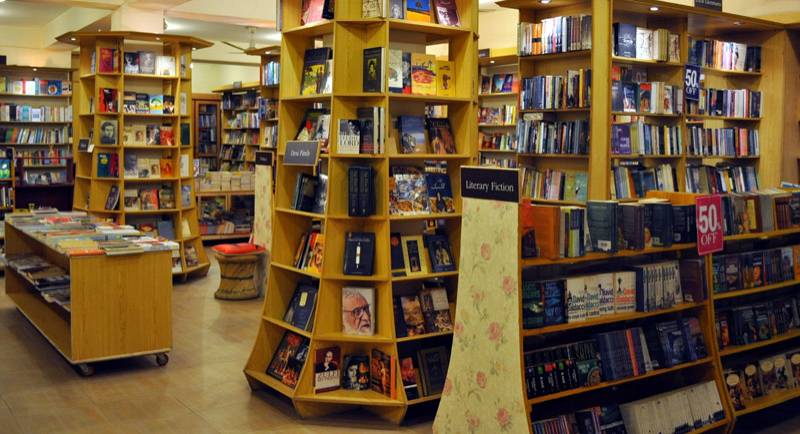
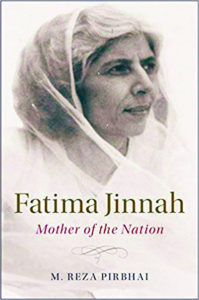
Fatima Jinnah: Mother of the Nation
M. Reza Pirbhai
Cambridge University Press (2017)
Although fifty years have passed since the death of Fatima Jinnah - author, activist and stateswoman known in Pakistan as the ‘mother of the nation’ - this is the first scholarly biography to tackle her life in full. Her background and contribution to Muslim nationalism under the British Raj, as well as her various efforts to consolidate the state, including a run for president in 1964, are told through previously untapped archival sources. Examining her life in the context of scholarship on South Asia and on women in Islam, Pirbhai assesses Fatima Jinnah’s role through the theoretical lens of the colonial ‘new woman’. This is essential reading for all those interested in modern South Asian and Islamic history, particularly the themes of gender and colonialism, the roots of Muslim nationalism and the early challenges facing the Pakistani state, as shown through the extraordinary lived experience of its most influential female activist.
M. Reza Pirbhai is a faculty member at Georgetown University.
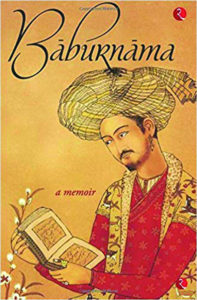
Baburnama: Zahiru’din Muhammad Babur Padshah Ghazi
Babur (author), Annette Susannah Beveridge (translator)
Rupa Publications India (2017)
A translation of Babur’s personal memoir written in Turki, Baburnama remains true to the original, portraying the extraordinary life of the founder of the Mughal Empire in India. Often quoted by historians and academicians alike, this book possesses the rare distinction of being relevant across centuries. Baburnama is the complete record of Babur’s life from the time he ascended the throne at the young age of eleven to when he finally established himself as a monarch (1493 to 1529). What fascinates readers even today is Babur’s intimate and detailed account of the world around him and what is truly astonishing is that there is no historical precedent for his narrative, making it the first real autobiography in Islamic literature. Annette Susannah Beveridge’s nuanced translation offers us a unique insight into this remarkable period in history.
Babur was a conqueror from Central Asia who, following a series of setbacks, finally succeeded in strengthening the grounds for the Mughal dynasty in the Indian subcontinent and became the first Mughal emperor.
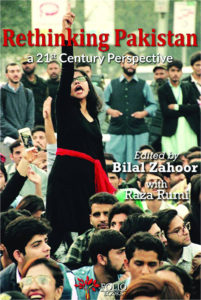
Rethinking Pakistan: A 21st Century Perspective
Bilal Zahoor, Raza Rumi
Folio Books (2019)
Rethinking Pakistan brings together some of the best minds of the country and invites them to reflect upon the most pressing issues that it is facing in all spheres – including politics, external relations, environment, human rights, gender relations, religious fundamentalism, education, freedom of expression…It is a most valuable collection that is highly accessible to everyone.
Rethinking Pakistan is a wide-ranging analytical dissection of the Pakistani polity and offers a well-meaning, progressive prescription for present-day Pakistan, stitched together by an eclectic list of experts spanning diverse backgrounds and subjects. From energy self- sufficiency and scientific development to freedom of the press and the essential question of the dominance of the military over civilian affairs, this compendium offers a suitable guide for anyone who seeks to understand the striking mix of contemporary and historic challenges faced by Pakistan in the 21st century. A must-read on Pakistan’s contemporary realities and future prospects.
The book sets up an unfamiliar but authentic diagnostic mosaic of Pakistan that the state prefers ignoring. It collects and presents the genius that Pakistan sets aside, stretched out on its ideological bed of repeated blunders. What emerges is an intensely original view from the marginalised intellect the world recognises as Pakistan’s survival kit.
Raza Rumi is a Pakistani policy analyst, journalist and an author. He has been a development practitioner for more than two decades.
Bilal Zahoor is the founder and Editorial Director of Folio Books.
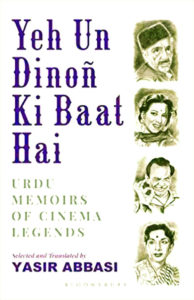
Yeh Un Dinoñ Ki Baat Hai: Urdu Memoirs of Cinema Legends
Yasir Abbasi
Bloomsbury Publishing (2018)
Peppered with heartfelt accounts and charming anecdotes, Urdu film magazines were in great favour with the public from the 1930s through the 1990s – a considerable period of seven decades. Unfortunately, as Urdu got progressively marginalised in later years, these magazines were not archived, for the most part; leading to their inevitable disappearance from popular imagination.
Tracking down these lost publications, Yasir Abbasi followed leads – some futile, some fruitful – to obscure towns and people’s homes in a last-ditch effort to save valuable records of Indian cinema. As challenging as it was to locate faded issues and original texts, he managed to uncover and translate many fabulous memoirs covering a wide gamut of our favourite old artistes at their candid best.
A gloom-laced piece on Meena Kumari by Nargis, a rollicking description by Raja Mehdi Ali Khan of an eventful evening with Manto (not to mention a mysterious woman and a house on fire), Jaidev writing about his chequered career, Balraj Sahni introspecting about the relevance of Hindi and Urdu in films – it’s a rich mix of engrossing narratives brought back from oblivion.
A trained cinematographer by profession, Yasir Abbasi completed his early education from Gorakhpur and Lucknow. Following his Masters in Mass Communication from Jamia Millia Islamia, New Delhi in 2002, he has been involved with shooting documentaries and independent films, and has won several awards at film festivals for his work.
A lifelong film buff who watches The Godfather and Gunda with equal sincerity, he lives in Gurgaon with his wife.
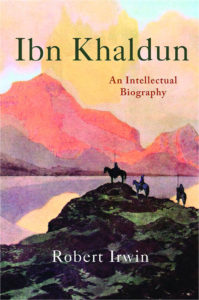
Ibn Khaldun: An Intellectual Biography
Robert Irwin
Princeton University Press (2018)
The definitive account of the life and thought of the medieval Arab genius who wrote the Muqaddima.
Ibn Khaldun (1332–1406) is generally regarded as the greatest intellectual ever to have appeared in the Arab world—a genius who ranks as one of the world’s great minds. Yet the author of the Muqaddima, the most important study of history ever produced in the Islamic world, is not as well known as he should be, and his ideas are widely misunderstood. In this groundbreaking intellectual biography, Robert Irwin provides an engaging and authoritative account of Ibn Khaldun’s extraordinary life, times, writings, and ideas.
Irwin tells how Ibn Khaldun, who lived in a world decimated by the Black Death, held a long series of posts in the tumultuous Islamic courts of North Africa and Muslim Spain, becoming a major political player as well as a teacher and writer. Closely examining the Muqaddima, a startlingly original analysis of the laws of history, and drawing on many other contemporary sources, Irwin shows how Ibn Khaldun’s life and thought fit into historical and intellectual context, including medieval Islamic theology, philosophy, politics, literature, economics, law, and tribal life. Because Ibn Khaldun’s ideas often seem to anticipate by centuries developments in many fields, he has often been depicted as more of a modern man than a medieval one, and Irwin’s account of such misreadings provides new insights about the history of Orientalism.
In contrast, Irwin presents an Ibn Khaldun who was a creature of his time—a devout Sufi mystic who was obsessed with the occult and futurology and who lived in an often-strange world quite different from our own.
Robert Irwin is senior research associate at the School of Oriental and African Studies in London and a former lecturer at the University of St. Andrews, Scotland. His many books include Dangerous Knowledge: Orientalism and Its Discontents and Memoirs of a Dervish: Sufis, Mystics, and the Sixties, as well as seven novels. He is a Fellow of the Royal Society of Literature.

